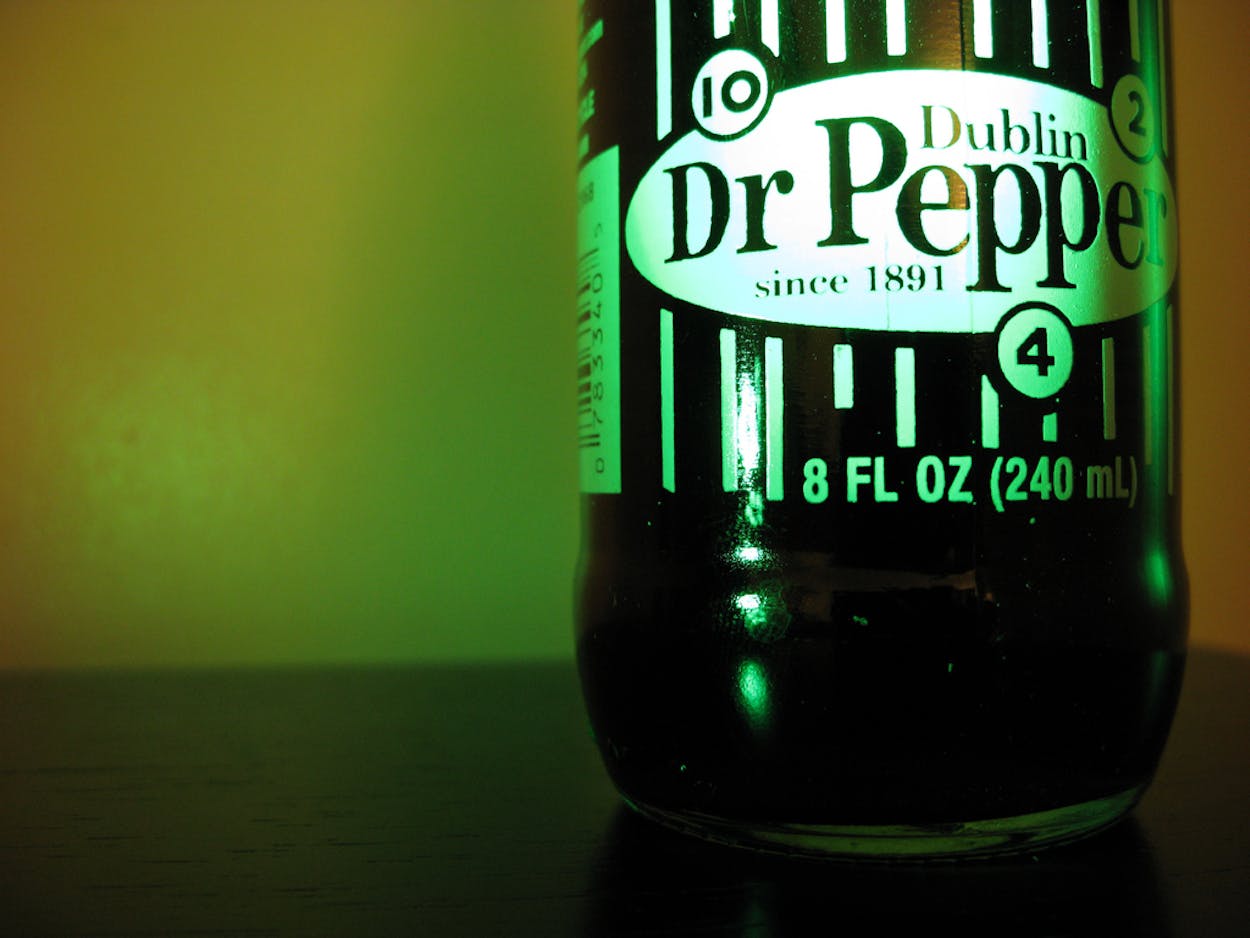What’s next, the addition of a period?
The Dallas-based Dr Pepper Snapple Group and the Dublin-based bottler formerly known as Dublin Dr Pepper settled an ongoing trademark dispute Wednesday, putting an end to the latter company’s long practice of bottling its own cane-sugar-sweetened Dr Pepper that was (theoretically) only for sale in six Texas counties.
(As Robert Wilonsky of the Dallas Observer noted, the legal battle seems to have come to after “corporate started selling its own version of the throwback beverage made with blended beet sugar and sold in cans looking like the Dublin containers.”)
The company formerly known as Dublin Dr Pepper will now be called Dublin Bottling Works, and while it will continue to run its museum and soda shop, it also laid off fourteen of its forty employees as a result of the settlement. The newly-restructured company will continue to produce other cane-sugar sodas.
”We want to thank our many customers for their support of our family-owned business during the past 120 years, and we want them to know that Dr Pepper is still a big part of Dublin,” said Jeff Kloster, vice president of Dublin Bottling Works, in the press release. “We hope customers will continue to visit our town, the W.P. Kloster Museum and Old Doc’s Soda Shop, where they can still enjoy Dr Pepper sweetened with cane sugar.”
The exact provenance of that Dr Pepper is the subject of some confusion. As Barry Schlachter of the Fort Worth Star-Telegram wrote:
Despite its cult following, many Texans were unaware that most of the sugar-sweetened version was produced for Dublin Dr Pepper by another independent bottler in Temple, which also supplied other territories, including the Metroplex. But Dublin Dr Pepper’s bottles carried a unique label spelling out the Dublin connection.
The actual plant in Dublin has been producing limited quantities of the sweet nectar for more than a decade, according to the Wall Street Journal:
Much of the Dublin bottler’s machinery dates back to the 1930s. Recently the antiquated plant would only operate about once a month, enough to refill about 2,000 glass bottles, many of which have circulated for decades. The company outsourced most of its production to a larger independent Dr Pepper bottler more than a decade ago.
The cane-sugar drink will now be distributed by Dr Pepper Snapple and will no longer be marketed as Dublin Dr Pepper, but, the company says, “it’s the same product Dublin sold.”
That was little consolation to fans of both the drink and Texas history. A Facebook groups called I Support Dublin Dr Pepper had, as of early Thursday morning over one thousand “Likes,” plus more than one thousand shares and more than six hundred comments (though its status update incorrectly states that Dr Pepper “won their case” and “have closed the plant in Dublin”).
The Star-Telegram’s Schlachter found that the people of Dublin were not taking the news as calmly as Kloster had to in the press release. “As of today, I will never drink another Dr Pepper,” vowed First Bank of Dublin vice president Pat Leatherwood.







